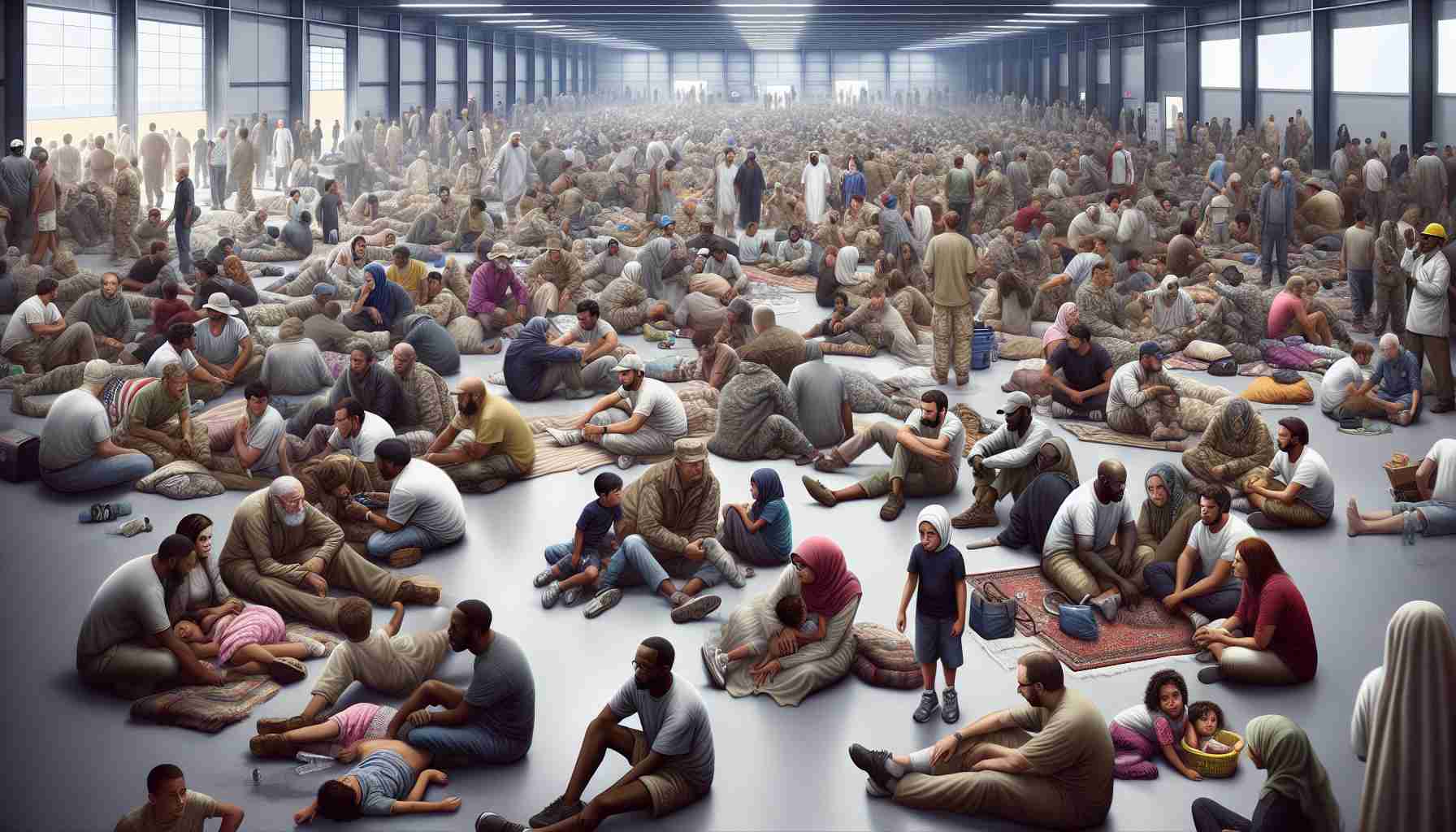
Escaping Conflict: Stories from Evacuation Centers
Amidst the ongoing conflict between neighboring countries, civilians have been forced to flee their homes for safety. Families like Volodymyr and his elderly father are seeking refuge in evacuation centers, leaving behind their lives near the volatile border.
Volodymyr describes the increased danger in the region, with Russia deploying air raids that have escalated the already dire situation. Evacuation centers in cities like Soemy are now overflowing with displaced individuals, where they can find temporary respite, sleep on bunk beds, seek shelter, and register as refugees for state assistance.
Hannah Boetakova, a relief coordinator, recalls the chaos as hundreds of people flooded in daily seeking shelter from the relentless bombings. The use of deadly cluster bombs by Russian forces has made the situation even more perilous, causing widespread destruction and casualties.
The decision to flee is not taken lightly, as seen through the eyes of 75-year-old Antonina, who left her village near the border to seek safety. Despite the hardships, there is a sentiment of determination among the displaced population. Antonina expresses support for the offensive actions taken by Ukraine, emphasizing the importance of self-defense and the necessity for Western support to continue the fight for survival.
As the conflict rages on, these personal stories shed light on the human toll of war and the resilience of those caught in the crossfire. The struggle for safety and stability continues as civilians navigate the harsh realities of conflict zones.
Escaping Conflict: Additional Insights and Challenges
Amidst the turmoil of ongoing conflict and the harrowing accounts of displacement, there are crucial aspects that deserve further attention. Let’s delve deeper into unexplored facets that shed light on the complexities of escaping conflict and seeking refuge in evacuation centers.
Key Questions:
1. What are the psychological impacts of long-term displacement on individuals residing in evacuation centers?
2. How do evacuation centers ensure the safety and well-being of vulnerable groups such as children, elderly, and persons with disabilities?
3. What long-term solutions are being considered for the displaced population once the conflict subsides?
Key Challenges and Controversies:
1. Resource Allocation: A significant challenge faced by evacuation centers is the equitable distribution of limited resources such as food, water, and medical supplies among a large influx of displaced individuals.
2. Security Concerns: Ensuring the safety of residents in evacuation centers poses a persistent challenge, especially in conflict zones where the risk of violence or attacks remains high.
3. Integration with Host Communities: The integration of displaced populations with host communities post-conflict can give rise to tensions over resources, employment opportunities, and cultural differences.
Advantages and Disadvantages:
Advantages:
– Immediate Shelter: Evacuation centers provide a safe haven for those fleeing conflict, offering temporary accommodation and essential services.
– Access to Aid: Being registered as refugees in evacuation centers facilitates access to basic necessities, healthcare, and support from humanitarian organizations.
Disadvantages:
– Overcrowding: Evacuation centers often struggle with overcrowding, leading to hygiene concerns, lack of privacy, and heightened tensions among residents.
– Prolonged Displacement: Extended stays in evacuation centers can exacerbate feelings of uncertainty, isolation, and dependency on aid, impacting the mental well-being of individuals.
For further insights on humanitarian aid efforts and initiatives supporting displaced populations, visit UNHCR for a comprehensive overview of their global refugee assistance programs and advocacy work.
The stories of resilience and challenges faced by individuals in evacuation centers underscore the urgent need for continued support and solutions to address the multifaceted issues arising from conflict-induced displacement.

















